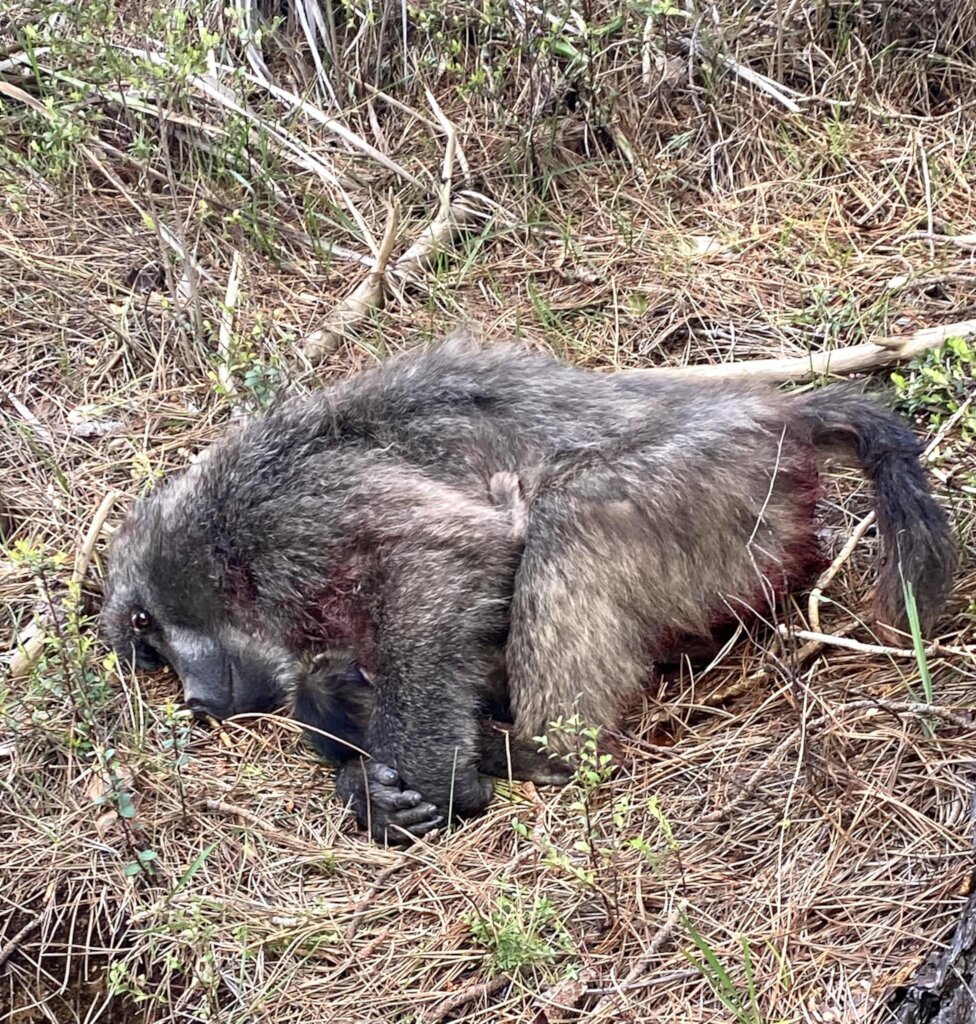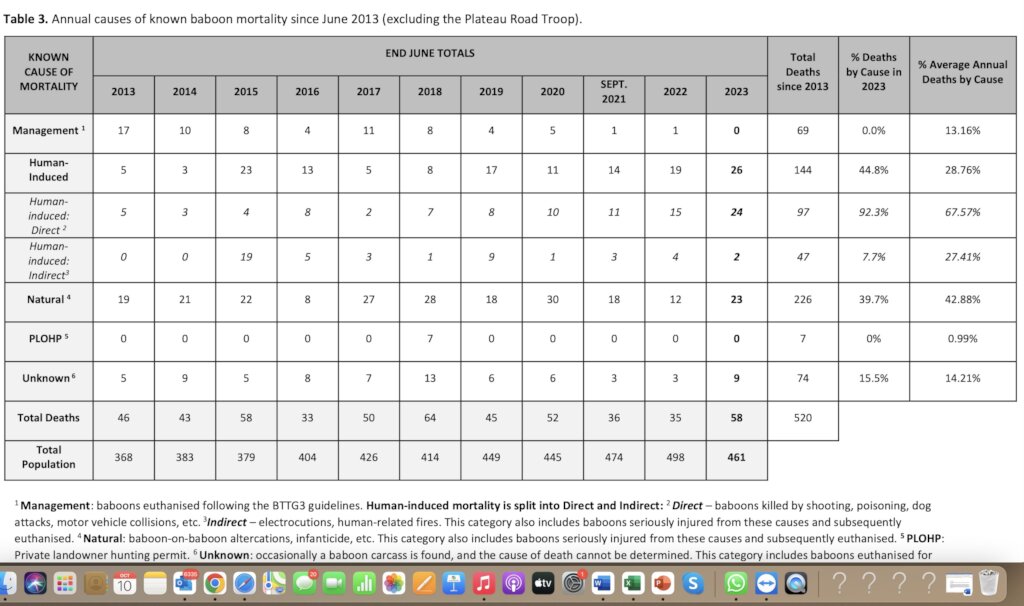By Jenni Trethowan | Founder Member
2023 has been an exceptionally busy year with the Cape peninsula annual census showing the highest recorded death rate since 2013. If this is the situation with baboons in a protected and managed environment, we can only assume that elsewhere in SA the death rate is higher. This concern is supported by anecdotal evidence such as a community who reported that their troop had dropped from over 20 baboons to just 12 in recent weeks…
We are continuing our hard work with communities, with the CT2 troop specifically, and are advocating fiercely that the relevant role players and decision makers are held accountable for lack of delivery for the most basic of management tools when it comes to reducing conflict between baboons and humans.
It is widely accepted, by primatologists from around the world, that they best way to reduce time baboons (or other primates ) spend in human occupied areas, is to reduce attractants that lure primates to those areas. The most obvious attractant is food thrown away in garbage; organic matter should not be in general waste when it can better be use for composting and soil restoration, why is food thrown in waste still acceptable?.
Why have the municipalities not implemented plans that they have supported through research workshops and reports over the past 20 years? Waste management is just one critical area of management – and not only for baboons but for the planet.
Other aspects of managing the baboon human interface such as implementation of strategic baboon proof fences, education, speed control and implementation of by-laws are vital if we are to learn to live alongside wildlife neighbours.
We are of the opinion that we will need to secure a court order to hold the authorities accountable for the implementation of their own management tools and intend to pursue this route as the only way possible to secure a future for baboons not only on the peninsula but over South Africa if a precedent is set in law.
This is an urgent appeal for support for our continued advocacy and legal action to keep baboons safe in the Cape peninsula and to achieve management principles that will be applied across South Africa
https://capespca.co.za/wildlife-news/state-of-baboon-welfare-report-2023/
Project reports on GlobalGiving are posted directly to globalgiving.org by Project Leaders as they are completed, generally every 3-4 months. To protect the integrity of these documents, GlobalGiving does not alter them; therefore you may find some language or formatting issues.
If you donate to this project or have donated to this project, you can receive an email when this project posts a report. You can also subscribe for reports without donating.
Support this important cause by creating a personalized fundraising page.
Start a Fundraiser
